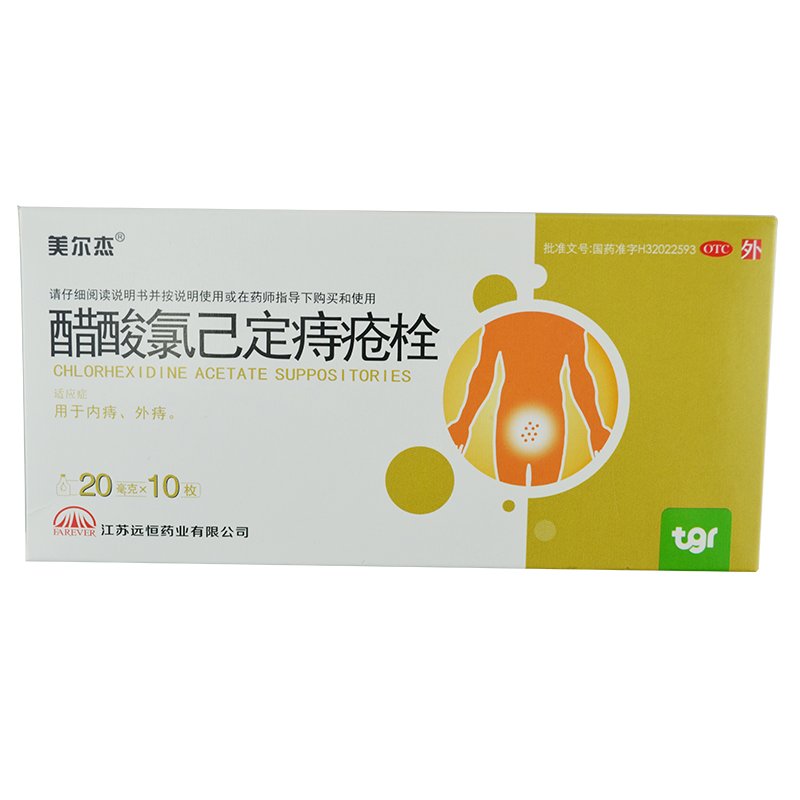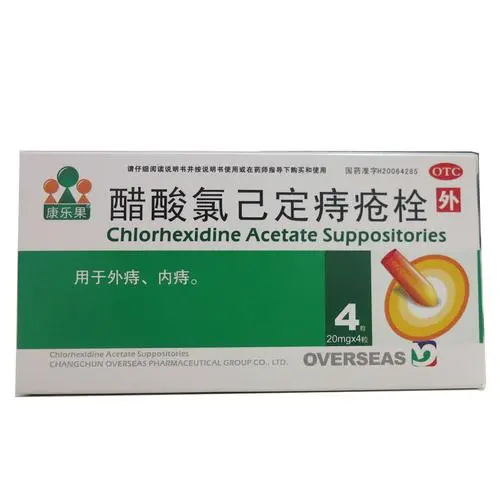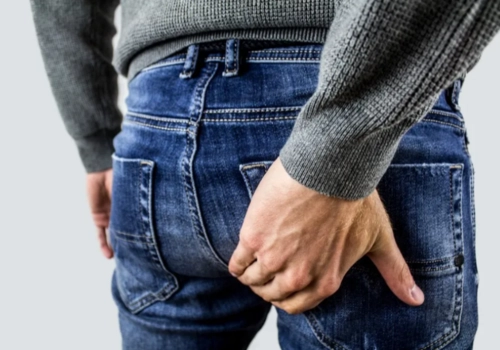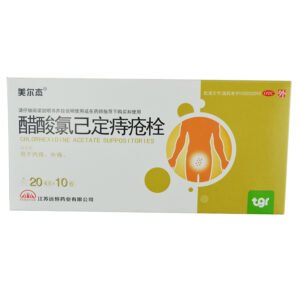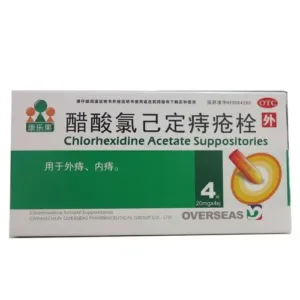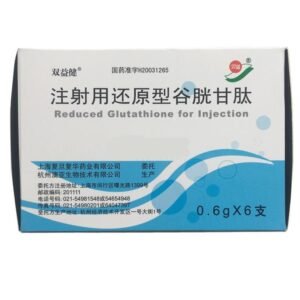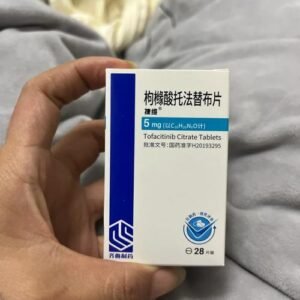Chlorhexidine Acetate Suppositories.
Chlorhexidine acetate hemorrhoid suppository is a medicine for hemorrhoids. The main ingredient of this product, chlorhexidine acetate, is a cationic surfactant with a broad antibacterial spectrum, strong antibacterial effect and hemostasis. Its main clinical indications are: external hemorrhoids and internal hemorrhoids.
After the main ingredient of this product, chlorhexidine acetate, is adsorbed on the bacterial cell wall, it can change the bacterial surface structure and osmotic balance, causing the bacterial cytoplasm components to leak. High concentrations of chlorhexidine can coagulate the cytoplasm and inhibit the repair of bacterial cell walls, thereby playing a bactericidal role. This mode of action is not easy to produce drug resistance. Among the common disinfectants currently available, chlorhexidine acetate has good effectiveness and safety. The antibacterial spectrum of chlorhexidine acetate includes Gram-positive bacteria and Gram-negative bacteria, fungi (such as Candida albicans) and certain viruses (such as HIV, HBV). The effect on Gram-positive bacteria is stronger than that on Gram-negative bacteria. It is highly sensitive to some Staphylococci, Streptococcus mutans, Streptococcus salivarius, Candida albicans, Escherichia coli and anaerobic propionibacterium; moderately sensitive to Haemophilus Streptococcus, and slightly sensitive to Proteus, Pseudomonas, Klebsiella and Gram-negative cocci (such as Veillonella). It is ineffective against bacterial spores and acid-resistant bacteria at room temperature. Its antibacterial effect on Gram-positive and Gram-negative bacteria is stronger than that of disinfectants such as benzalkonium bromide. It is still effective even in the presence of serum, blood, etc.
Share:
Products
Our offers
Health Classification
Let us work together to protect precious health

